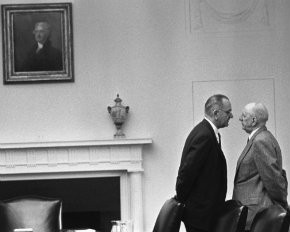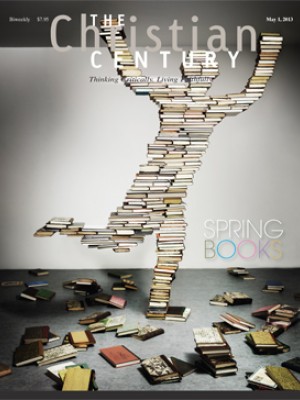The art of power

At a White House dinner honoring Nobel laureates, President John F. Kennedy said, “This is the most extraordinary collection of talent, of human knowledge, that has ever been gathered together at the White House, with the possible exception of when Thomas Jefferson dined alone.”
Jon Meacham’s biography, Thomas Jefferson: The Art of Power, reminded me again of how remarkable Jefferson was. He had a profound appetite for philosophy, mathematics, astronomy, horticulture and theology. He appreciated fine French wine and believed that individual liberty was the basis of a good society and a just government. His greatest personal flaw and political failure was that he never extended his beliefs about liberty to slavery. He knew the institution was morally evil but declined to argue for abolition or to free his own slaves. Most historians agree that he maintained an intimate relationship with one of them, Sally Hemings, and that she bore several of his children.
Read our latest issue or browse back issues.
He authored the Declaration of Independence, advocated for freedom of religion and embraced a radical notion: that using public funds to support an established church is “spiritual tyranny.” It did not speak well of the power of God, he thought, if God needed a human government to prop God up.
After the presidency of George Washington, the jury was still out on what kind of government would prevail in the new nation. Alexander Hamilton and the Federalists preferred a strong central government dominated by men of culture, education and pedigree. They entertained the notion of a monarchy and favored a close relationship with Great Britain.
Jefferson’s Republicans wanted nothing to do with monarchy, centralized government or standing armies and navies; they were willing to trust the people to govern themselves. The conflict between the parties was bitter and offers plenty of precedent for the current ideological stalemate in Washington.
Jefferson, who understood the value of compromise, was attacked by a radical fringe that felt he “was no longer Republican enough . . . he had been guided not by dogma but by principled pragmatism.” These radicals sound like the ones who excoriated Governor Chris Christie for collaborating with President Obama on disaster relief.
In reading Doris Kearns Goodwin’s Lyndon Johnson and the American Dream I encountered another politician who understood the acquisition and use of power. But Johnson was also a master at reaching across the aisle in every imaginable way to keep political lines of communication open. Kearns quotes Johnson: “The biggest danger to American stability is the politics of principle, which brings out the masses in irrational fights . . . it is for the sake of . . . stability that I consider myself a consensus man.”
Johnson’s story is also part tragedy. He believed that there was nothing America could not accomplish, which led him not only to launch the war on poverty, an admirable goal, but also into the troop escalation in Vietnam which ended in disaster.
Both leaders were vastly talented, and both were deeply flawed. Both understood power and the art of compromise. At their best, they knew how to use power in the service of enlightened governance—a capacity that is sorely needed these days.






